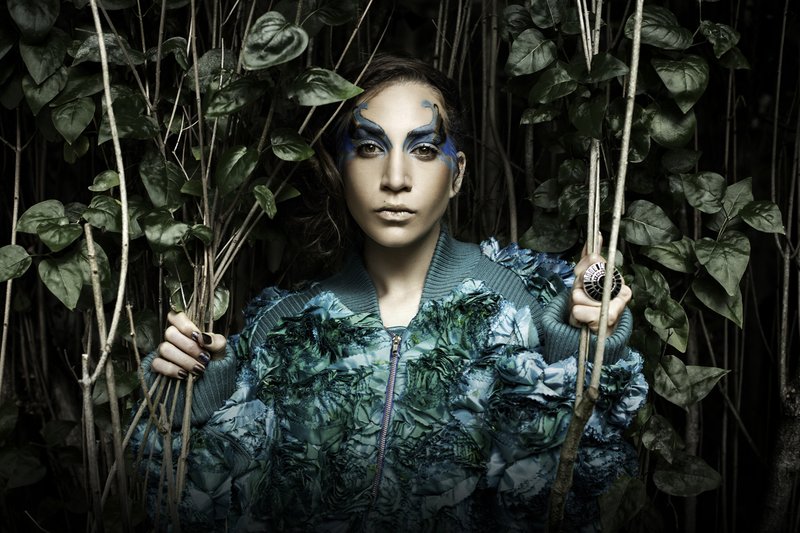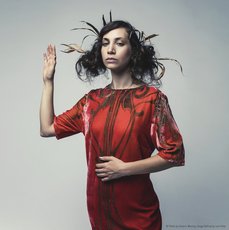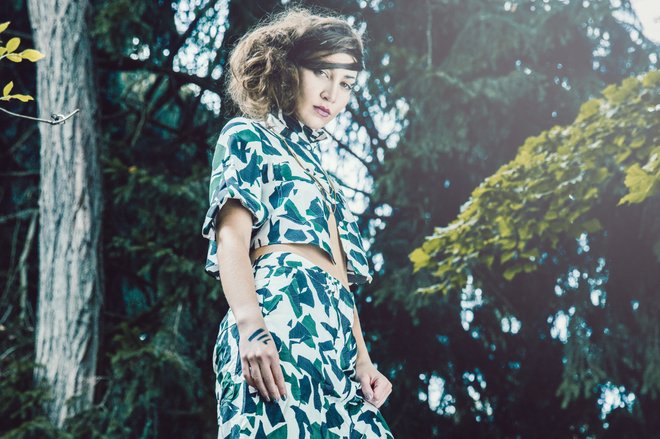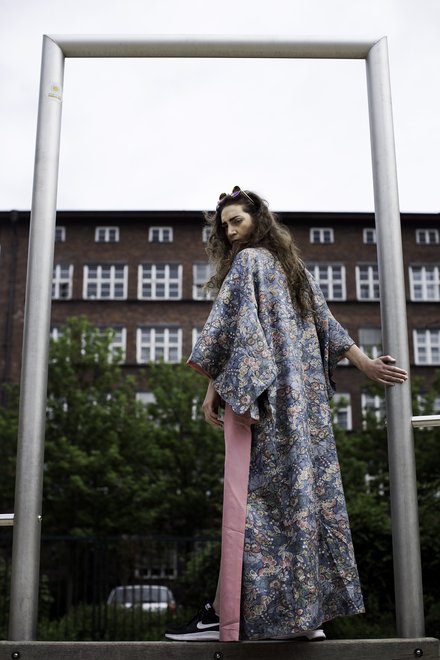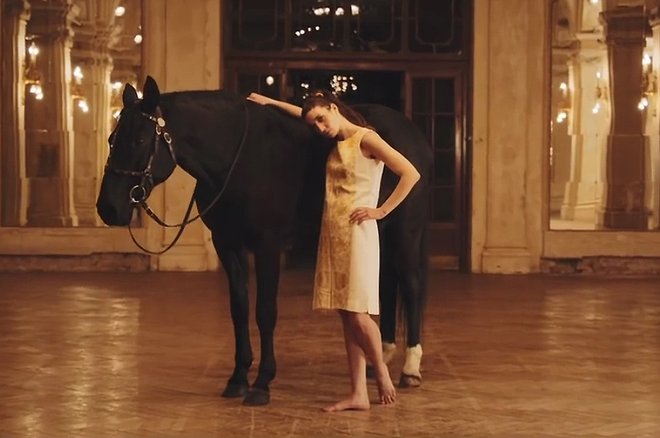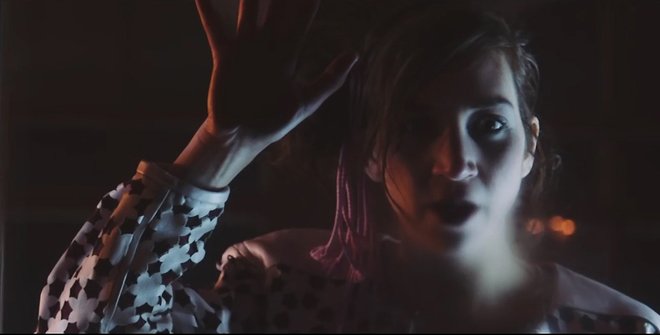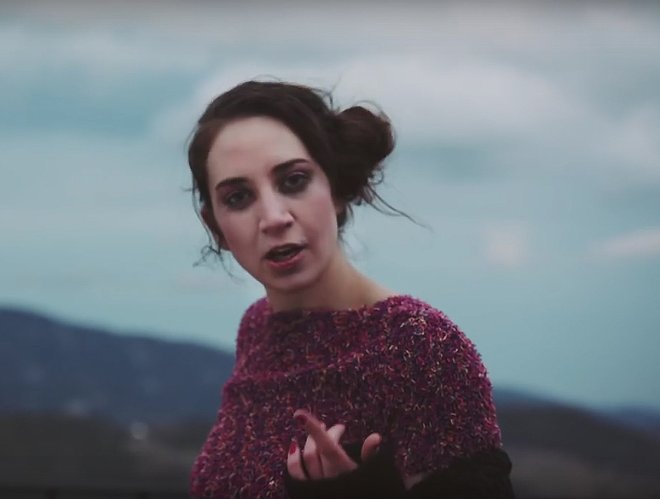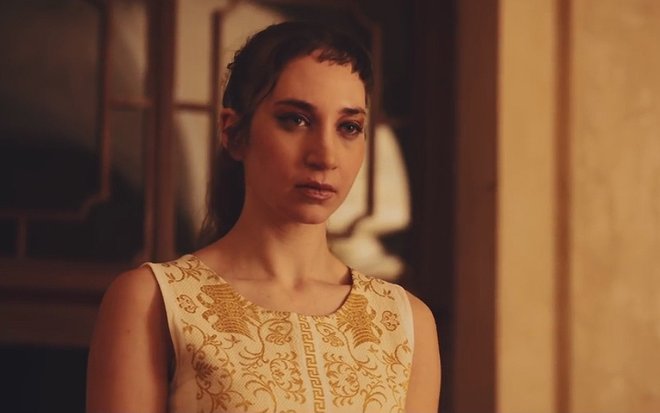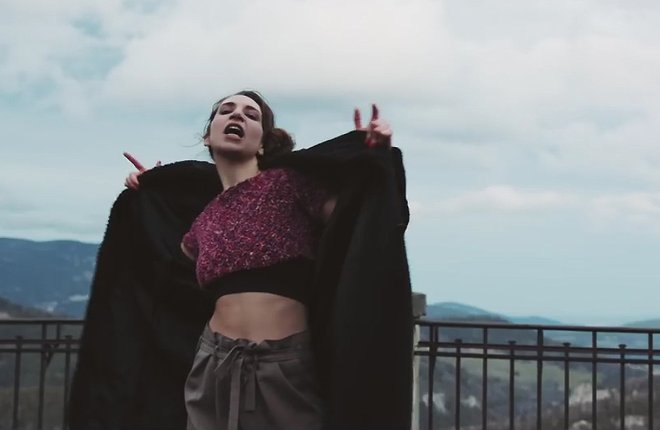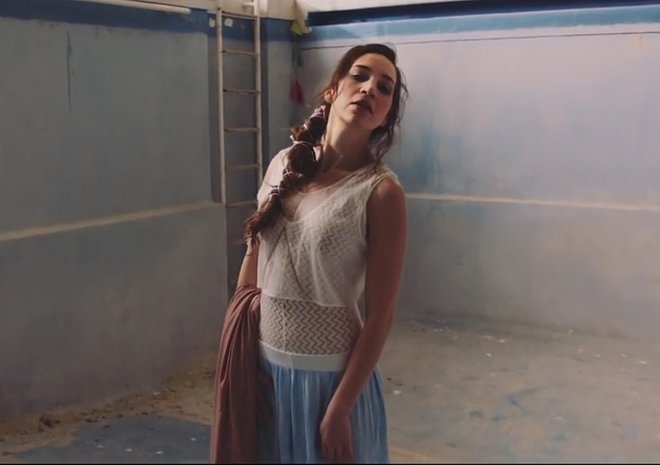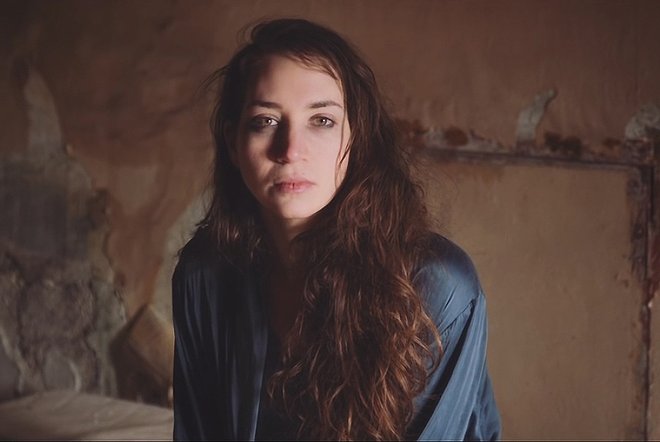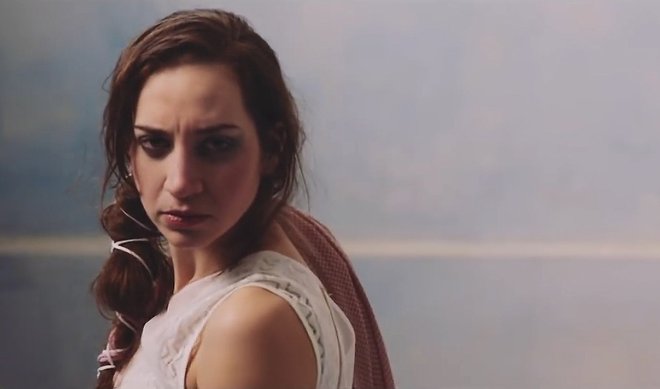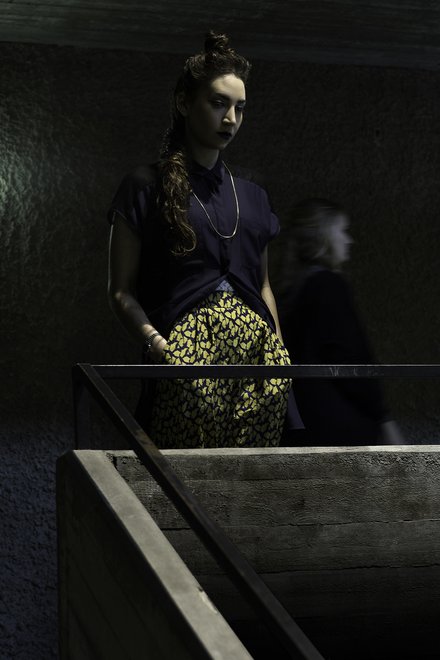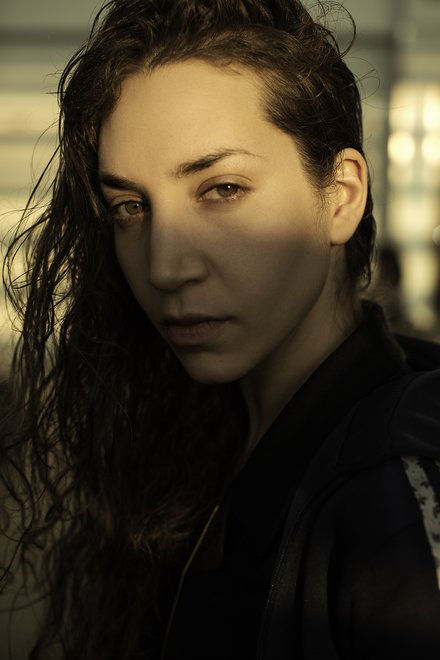funk tribute in a fresh outfit
Born in Israel and raised in Brooklyn, Noa Ben-Gur aka Playing Savage is one of THE new discoveries in Vienna’s music scene. In 2015 the funk-rock diva won the Amadeus Austrian Music Award in the category “Songwriter of the Year” with her track Leya. She has a voice like a bottle of Scottish whiskey: smoky, exuberant, and with proper punch. Together with Wanda producer Paul Gallister she produced her debut album Wild, was released on October 15, 2016.
Noa Ben-Gur: Do you want to interview me as a person or as Playing Savage?
Werner Sturmberger: Our magazine is first and foremost about characters and then about their projects, so let’s start with the first!
"We need new role models who show women that they should be themselves."
Playing Savage is not just a stage persona. Like the big divas. Conchita Wurst isn’t just Tom either. Playing Savage represents my cooler side. (laughs) She has a cool voice and doesn’t give a shit. That’s liberating. You can be a bit crazier on the stage.
Are the great divas of the pop business an inspiration for you?
What bugs me about the big divas of the past ten years is that they always act so hurt and pensive – like Adele or Amy Winehouse, for example. Where’s the self-confidence? We need new role models who show women that they should be themselves. Lady Gaga is one of the few who do it differently; she created her own gutsy language. I see myself as part of a new wave of women, like Jennifer Lawrence or Amy Schumer, who embody a different type of beauty, they’re intelligent and funny. They don’t listen to what other people say. They do their own thing. I think Austria needs something like that. (laughs)
"I got a guitar as a gift when I was twelve and began to write songs!"
Following your fantastic single “Bigger”, everything should be even bigger now. Are there epitomes?
Madonna is inspiring. She’s a strong character. She always fought to build her career without the help of rich parents. I have the feeling that these types of women have vanished from mainstream culture. Today they have to show their softer side and remain feminine. But there are so many ways to be feminine. Perhaps the biggest success of feminism is that women can also be funny. There were isolated cases every now and then, but today strong women are cropping up who dare to be funny. The best example is the American sitcom Broad City (editor’s note — The story follows two women in their mid-twenties in the jungle of New York City who find the quirkiest ways to survive the adversities of the everyday.). It captures my relationship with my best friend perfectly. Some of these scenes actually happened to me!
On stage you transport the diva-esque through your extravagant outfits as well. Is fashion also important to you in your private life?
Yes, I’m a real fan of fashion – it is a big part of me. It’s exciting to work together with artists from other disciplines. For instance, the Austrian label DMMJK. I’m wearing a jacket by them on the cover. I really like their work a lot, but I don’t fit into their pants – I have a bit too much ass. (laughs) I also work together with Rani Bageria and wear one of her tops in the video. The other outfits come from Daniel Frohmann, who is currently working on his thesis at the University of Applied Arts Vienna. Daniela Schink designed my pants and skirts. She is a close friend of mine and a real funny character. And developing a concept for the video was also great fun with director Tobias Pichler and the guys from Wildruf. The shootings with Philip Tsetinis are always something special as well.
“If you succeed, you succeed cause it’s independent.”
What brought you to Vienna?
Love landed me in Vienna. Why I stayed was destiny. I always wanted to go, but life said: “Nope, you’re staying here.” I wanted to go back to New York, but then I got a record deal with Seayou Records. That happened in a matter of a month. I had already booked the flight.
How did that happen?
Ilias Dahimène, the boss of Seayou, approached me about a song I recorded last year. I also produce a bit myself. Together with Paul Gallister, who also produced Wanda, we agreed that my voice should be the main focus. The problem with electronic music is that you never hear the vocals really well. (laughs) Unlike typical electronic music, my vocals aren’t buffed. It’s more mainstream, but you can’t just toss me in the hipster basket. I sing with a lot of emotion cause I feel my songs. But there’s also a risk that comes along with that. But if you succeed, you succeed cause it’s independent.
You sing noticeably deeper than on earlier recordings…
From the beginning of the project I wanted to find my voice, beyond my classic folk music voice. I got a guitar as a gift when I was twelve and began to write songs, primarily singer-songwriter folk. Back then I sang quite high. Later on I even studied as a soprano. In my mid-20s my voice sort of broke, and I couldn’t sing so high anymore. Then it was clear to me that I actually have a deep voice. Instead of songs that makes people cry, now I prefer to sing songs that give them energy.
Do you have a special place where you write your songs?
I write all over the place – while walking, biking, when I’m ironing or cleaning. The hook for one of my songs on the album came from a dream. I’ve learned to wake up from my dreams so that I can immediately sing it and record it. I finished writing the single “Bigger” in a music shop in downtown Brooklyn. I knew that if all the homies are staring in my direction, listening and nodding along, then I'm on to something! (laughs)
“You can’t make good art just by yourself. There are a lot of people behind a good song.”
Did you ever make funk and soul before?
No, I hadn’t written any songs in that style. I just sat down for two weeks and listened to music: Michael Jackson, Nina Simone, James Brown, Aretha Franklin, Marvin Gaye, Tina Turner, Sly and The Family Stone, The Jackson Five. Each song on the album is a tribute to one of these artists. The intro of “Bigger” even includes a reference to Michael Jackson’s Thriller. Funk is just great, it creates so much positive energy. At my last concert I was so happy that young girls also danced. That’s always a good sign that it grooves.
Do you come from a musical family?
No, not at all. This passion was always in me. My parents listened to music quite regularly. When we had guests on the weekends there was always music playing. Lots of classical music, Peter and the Wolf, Nutcracker, Mozart’s requiem, but also The Beatles, Crosby, Stills, Nash & Young, Janis Joplin, Tracey Chapman, or Cuban jazz.
Is working together with other people important to you?
What I’ve learned over time is that you can’t make good art just by yourself. There are a lot of people behind a good song. I also came to understand that you have to find the right partners. And they’re not the people who have the same talents I have. It would always be a kind of a battle, where everyone wants to claim one’s ground. It has to be people that balance you out.
Where are your strengths?
Songwriting, lyrics, performance. I’m a people person. I like talking to everyone. I’m not cool. (laughs) When someone thinks he or she is too cool for me, I won’t run after them. I like to do what makes me happy and meet people who like to meet me and respect me. They don’t have to be cool. (laughs)
“I’m high by nature.”
What do you find different in Vienna compared to New York?
New York offers a lot of inspiration; it’s a very intense city. But you can get lonely very quickly; everyone has to fight all the time there. Perhaps that’s why I have a slight advantage in this “let’s wait and see” mentality here in Vienna cause I’m used to fighting. I want to see results! (laughs)
You have been here for five years now. Do you feel comfortable in Vienna?
Yes, I have a big circle of friends, there are many people who support me. Most of my projects wouldn’t have worked out without these friendships.
The Viennese are known for not being so outgoing?!
They’re hard at the core. It took a year for some close friendships to develop. I think the Viennese actually want to be friendly and cheerful but nobody gives them the chance. You just have to hold on and be funny and nice all the time. At a certain point they’ll break! (laughs)
Which places do you like the most in the city?
I like the public spaces. The parks are very well maintained. The Burggarten is beautiful. Museumsquartier, too. Simply the idea that a lot of people can meet each other here in public space. I studied sociology and anthropology and wrote a paper about public spaces. The city planners in Vienna know how to plan for the people pretty well. And, of course, the coffee houses are also a fantastic public space.
Coffee houses before bars?
I don’t like to drink… that much. (laughs) I have my two-drink limit. Then I’m a slight tipsy. Then I’m good. Any more and I just get sleepy. That doesn’t do anything for me. I’m high by nature. (laughs)
Noa Ben-Gur was born in Israel and raised in Brooklyn. A part of her studies was spent in Tel Aviv, where she studied classical singing and sociology. She has been living in Vienna for five years, working as a songwriter together with different artists. In 2015 she – with Thorsteinn Einarsson, Lukas Hillebrand, and Alex Pohn – won the Amadeus Austrian Music Award in the category “Songwriter of the Year” for the track “Leya”. She is currently working together with Wanda producer Paul Gallister on her debut album “Wild” under the name Playing Savage. The album is available on October 21, 2016.
On October 15 there will be a release concert with Playing Savage at Kulturzentrum F23 (a former coffin factory).
Click here for Playing Savage – “Bigger” (directed by Tobias Pichler)
Itunes: http://apple.co/297x2Ho
CD: http://amzn.to/29xsQSQ
Contact:
Playing Savage
(Noa Ben-Gur)
+43 (0)699 160 73 429
PlayingSavage@gmail.com

